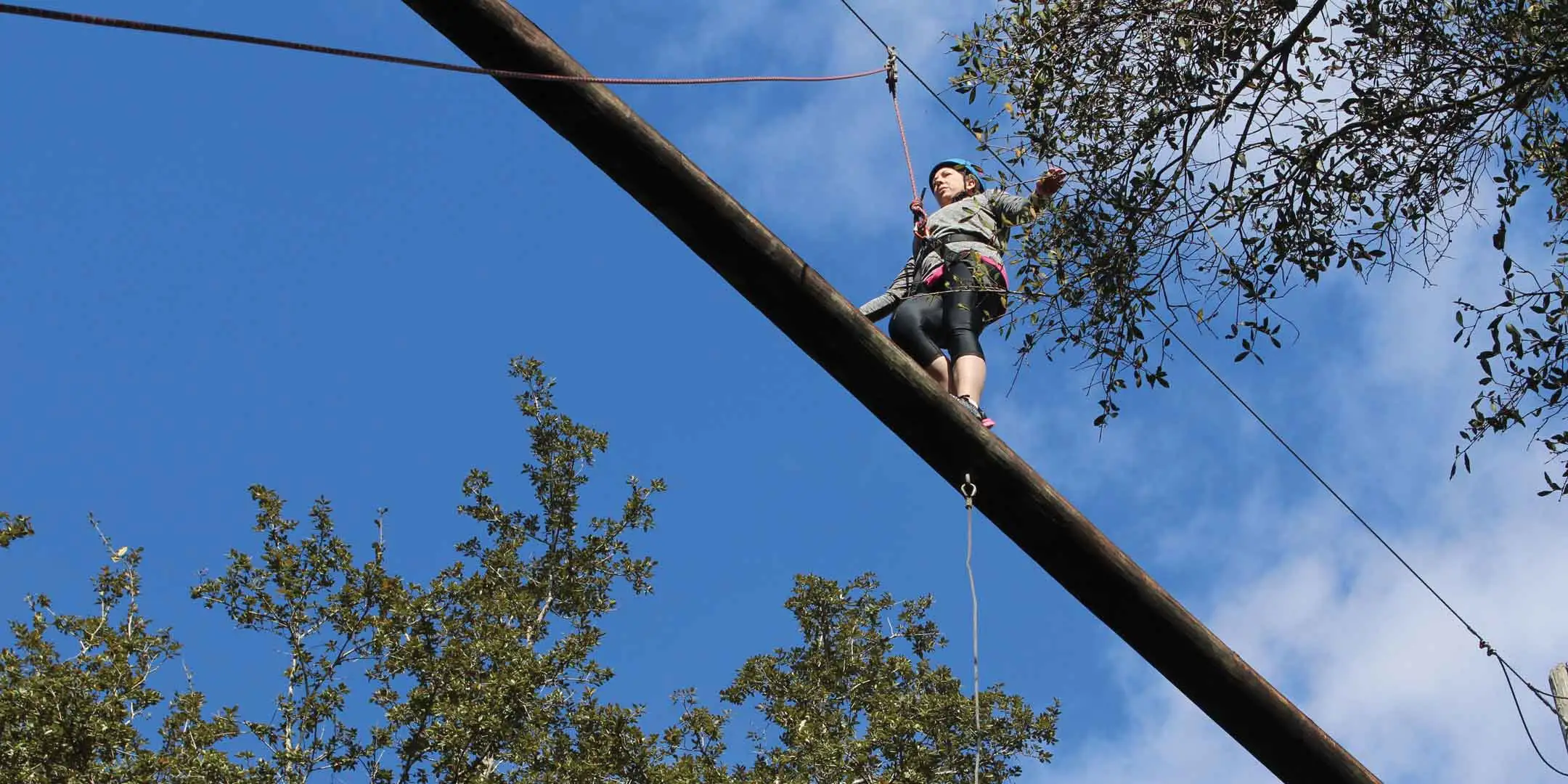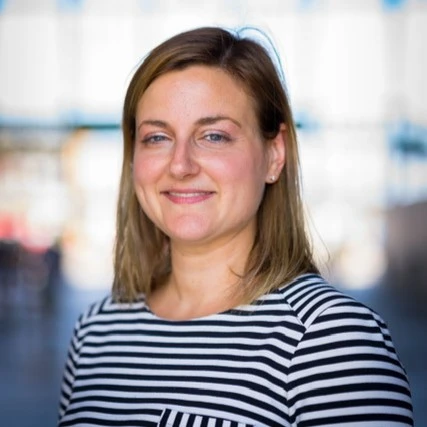“A journey of a thousand miles begins with a single step.” While you may not be planning quite that long of a journey with Conscious Discipline, it’s still helpful to know how others would approach that first step with the wisdom of experience behind them.
With so many implementation tools, eLearning experiences, and training opportunities within easy reach, let’s focus instead on the journey itself. Four longtime practitioners from around the world recently sat down to share their guidance for someone just starting out with Conscious Discipline.
Question: “I’m new to Conscious Discipline. What are three things to focus on at the start of my implementation journey?”
Interviewees: Latoria Marcellus, Wynonna Toeina, Jenny Barkac, Laura Angulo
Latoria Marcellus: Know Your Own Triggers
About Latoria: Latoria is passionate about having hard conversations concerning equity, language, and culture in the Conscious Discipline Family. A long-time Conscious Discipline practitioner and Certified Instructor, Latoria is a trusted voice and seasoned expert in the various stages of implementation. She is also the Senior Director of Education Strategy for Preschool Promise. Preschool Promise is a non-profit organization funded by Montgomery County, the City of Dayton, and local philanthropists to help young children get ready for kindergarten.
- Focus on yourself. You can’t make a change without first reflecting on the things that are hindering or helping you. Take a deep dive into how you interact with your triggers. Noticing your own behavior is always the first step in creating transformational change.
- Be kind. No one is perfect. There will be days when you are rocking it and days when you will notice you didn’t show up as your best self. Each day is part of the journey. Dust yourself off or give yourself a thumbs up and keep pushing.
- Celebrate small victories. When you start, find one Skill that you want to focus on. When I started, I picked “Choices.” Write your own word down and keep it with you where you go. Each time that you practice the Skill successfully, celebrate. It doesn’t have to be elaborate; it could be a simple thought of “I rocked that out.”
Wynonna Toeina: Use the Resistance
About Wynonna: Wynonna has a deep passion and a personal stake in reaching diverse and tribal communities with the trauma-responsive healing and transformative powers of Conscious Discipline. She considers herself fortunate to have been raised on the reservation of Puyallup Tribe of Indians in Tacoma, Washington. Wynonna currently serves as an Early Intervention Behavioral Assistant and specializes in ages 0-6.
- Focus on yourself and dive into what you’re curious about. You must center yourself first and focus on self-regulation. Pick apart what feels weird about Conscious Discipline; allow yourself to feel the emotions telling you that this is not going to work. You have to face those things before you begin implementing. You must shift your energy before you walk into the school or classroom. It then becomes an intentional change.
- Lean into and use the resistance some may have to the implementation process and Conscious Discipline in general. Use it to get to know more about the people you serve, and the defensiveness that causes them to ask, “Why is this any better than our own ways?” Conscious Discipline’s willingness to be a guide and ability to blend it with your own way of life impacts your child, school classroom, and community. That flexibility builds the Safekeeper role.
- Fidelity is the goal (language, visuals, etc.), but to keep the momentum going, it is more important not to rush the implementation. Really focus on the intention and the connection.
Dr. Jenny Barkac: It’s Not Behavior, It’s Biology
About Jenny: Dr. Jenny Barkac has been in education for nearly 30 years as a teacher, Behavior Interventionist, and an Adjunct Professor teaching a Behavior Management Course using Conscious Discipline. Her experience as a Certified Instructor and Training and Implementation Manager for Conscious Discipline, as well as her commitment as a Nuero-Educator fuel her advocacy for improving underdeveloped executive function and tiered levels of support.
- Focus on yourself and ask this question, “What is the hardest part of my day?” This will help you recognize where you want or need to start.
- Because Conscious Discipline focuses on the adult first, we must keep the nervous system in mind. When you are thinking about the hardest part of the day, think about how your body is responding to that time. If there is an imbalance, your nervous system will alert you. When you feel that imbalance within yourself (a Survival or Emotional State), take that deep breath, and that will help you regulate. Your regulation, then, becomes co-regulation into the classroom.
When kids are getting off task, it is an indicator that our systems and bodies need to move. Regulate the nervous system, and then they can respond from a higher brain state. Build more intentional movement to regulate the system throughout the day.
- When you practice your own self-regulation and provide co-regulation to the students inside your classroom, you can then move your attention to what is happening outside of your classroom. When kids are in a higher brain state and can be of service to others, and then they experience distress, there is no shame or inequity; they know it is a practice we all need to succeed. Wishing Well is a wonderful place to start. When there are moments of upset or dysregulation outside in the hallway, alert your classroom this way: “There is someone in the hallway who needs our help. Let’s pause, take a breath, and wish them well by sending all our love to them in this moment.”
Laura Angulo: Assertive Communication is Safe Communication
About Laura: A former special educator and current psychologist, Laura partners with a facility for abandoned children in Cali, Columbia. There, she serves up to 100 children from ages 0-8 and their 30 staff members to apply and model her vast Conscious Discipline knowledge and skills; providing hope and a way forward.
- Think of yourself as the field in which the seeds of love, self-compassion, empathy, and learning will start sprouting. What would you place in this soil to optimize the opportunity for full potential of these sprouts? You (the field) must be full of these same nutrients for the seeds to nourish, sprout and grow. This means that you must offer yourself love, self-compassion, empathy, and opportunity for learning. Taking care of yourself, making plans for you to be successful in this self-care, finding your own safe place and using it to navigate the chaos that life will bring is my first step in implementing Conscious Discipline for yourself and for the care takers that are a part of your team.
- Understanding why we behave in certain ways and which of our actions come from unconscious protective reactions, or from the social learning stored in our CD-Rom (or our thumb drive or cloud) helps us access the Power of Free Will. The Brain State Model helps us understand the science behind behavior so that we can make sense of what happens to ourselves and others. This allows us to see behavior with compassion and the understanding that it is a symptom of the chaos or calm within us. We are not victims of our biology or our upbringings. Being conscious of this can help us plan and set a roadmap to our most enlightened being. Get to know your brain and your story. Then, you will have the power to embrace who you are and be the change you want to see.
- Find your voice and use it! Adult Assertiveness is a tool that often needs to be tailored and sharpened. It requires self-awareness and respect for yourself and others. Your assertive voice will teach others how to treat you and will show those under your care what you expect and how to make it happen. With this assertive voice you will learn to set limits – this is an act of self-love.
If you’re interested in learning more about first steps for implementation, in need of support as a teacher or an administrator, or simply want to network within a community of like-minded educators, consider joining us at our event Conscious Discipline with Excellence, May 17th-18th in Tallahassee, Florida.
We’re now offering access to our 12+hour eCourse Engage with Equity FREE for an entire year ( a $499 value) with every event ticket!
Upcoming Educator Events:
Ft. Lauderdale, FL Teacher Event
Palm Springs, CA Teacher Event
Teacher Event in Nashville, TN 2024
Teacher Event in St. Louis, MO 2024




